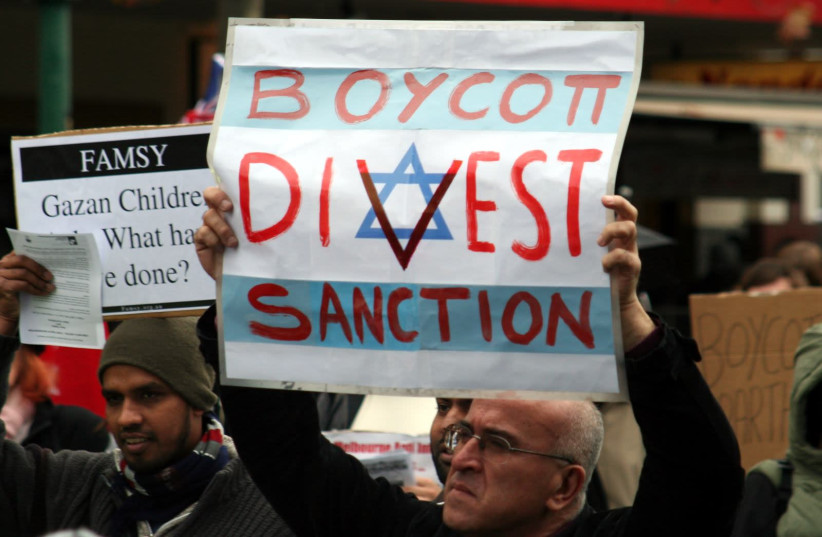A student paper at Wellesley College wavered on its support for the antisemitic Boston Mapping Project in a tweet on Wednesday, claiming that editorial staff had received "hateful comments" online after the paper initially express support for the project.
A piece published by the editorial board of The Wellesley News paper on September 28 called the Mapping Project a "vital service," claiming that the project does not provide "justification for violence or bigotry of any kind."
The piece sparked outrage, with Wellesley College President Paula Johnson issuing a statement stressing that the college "rejects the Mapping Project for promoting antisemitism," according to JNS.
Johnson additionally expressed concerns that the project "poses a significant threat to the physical security of the Jewish community of Greater Boston, including neighbors and partners of the college."
On Wednesday, the Wellesley News Editorial Board published a statement stressing that, despite calling the Mapping Project a "vital service," they do not endorse the project.

The board clarified that they "intended to use the Mapping Project only as a source of information about Wellesley College and its affiliated institutions."
"We apologize for not clarifying the nuanced nature of the Project's inclusion, and we recognize that the impact of our citation may have differed from its purpose," added the board, reaffirming their support for the BDS movement and Wellesley Students for Justice in Palestine.
The board additionally expressed its condemnation of antisemitism and all discriminatory beliefs, including "the use of The Mapping Project for antisemitic rhetoric and actions." The statement did not refer to the project itself as antisemitic.
What is the Boston Mapping Project?
The Mapping Project was developed by anti-Israel activists with the stated goal of mapping out "local institutional support for the colonization of Palestine" and other "harms" so that activists can "dismantle" and "disrupt" them.
Despite the stated goal of focusing on Israel connections, the map includes dozens of Jewish businesses, synagogues, charities and organizations throughout Massachusetts, including many with no clear Israel connection. The entities are also blamed for other issues, including racism, inequality, imperialism and ethnic cleansing.
The project has been widely condemned for being steeped in antisemitic tropes and conspiracy theories. The compilation of a list largely targeting Jewish entities has been compared by some to the Nazi boycott of Jewish businesses leading up to the Holocaust.
The Anti-Defamation League - which also made it onto the Mapping Project's list - stressed that no other community is targeted like the Jewish community on the list.
The ADL pointed out that the project uses tropes such as myths of Jewish wealth, power and control, the scapegoating of the Jewish community for a range of societal ills, and attempts to isolate and shun the entire Jewish community and those who interact with it.
"Any campaign that blames and scapegoats Jews as a community for perceived ills is, by definition, antisemitic,"it said.
